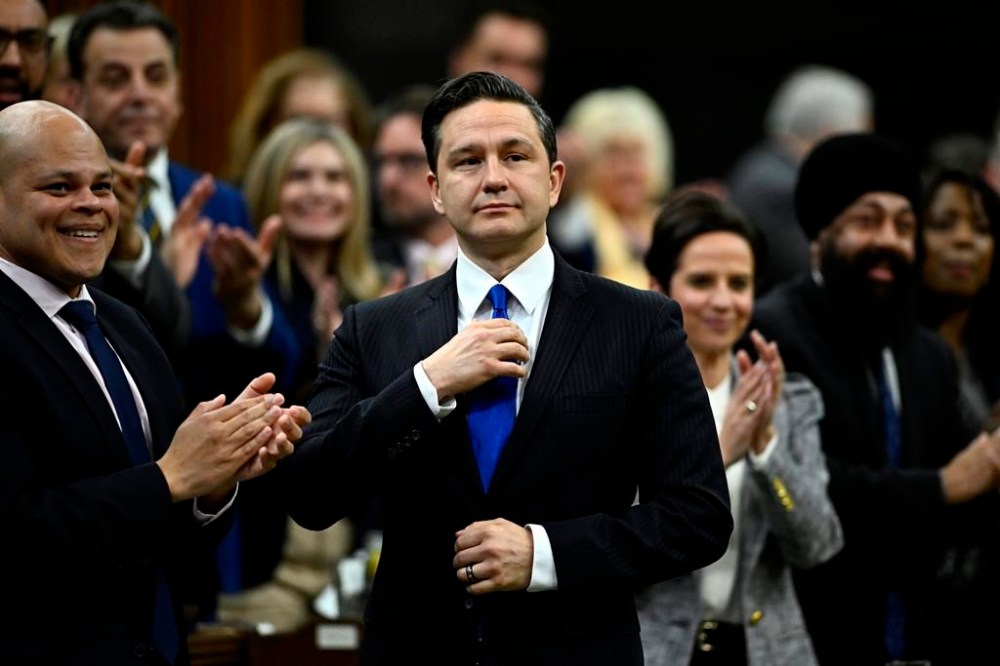It’s a simple concept: federal Finance Minister Chrystia Freeland wants the wealthiest Canadians to pay a bit more to help pay for affordable housing that will help a vastly larger number of Canadians.
What is not simple is predicting how Freeland’s decision to increase the capital-gains tax rate to fund things like affordable housing will impact the federal political playing field, one that is tilted very much away from the Liberals.
Faced with a stubbornly high deficit ($40 billion) and growing public debt, Freeland opted to take a bit more out of the pockets of arguably wealthy Canadians. To do this, Freeland is increasing the rate at which capital gains — the profit someone makes when they sell a business, stocks or property — is charged.
If the budget passes, individuals and corporations who earn more than $250,000 in capital gains will pay a 66 per cent tax rate; capital gains of less than $250,000 will pay 50 per cent. It’s important to note that this is not a tax on income over $250,000, only on the profit realized by the sale of assets.
As fiscal policy, will Freeland’s plan work?
The finance minister has estimated Ottawa will realize $19 billion in additional tax revenue, money desperately needed to fund other broad-based government programs. Unfortunately, the Liberals may be underestimating (again) the dedication that high-wealth individuals have to the art and science of avoiding taxes.
Remember, this isn’t the first time the Trudeau government has tried to make the rich pay more. In the 2017-18 tax year, the Liberal government introduced a 33-per-cent bracket for high-income earners. The result was that those tax filers cashed in fewer investments, sold fewer physical assets and as a result, paid considerably less tax both the federal and provincial treasuries.
To realize its full revenue-generating potential, the Trudeau government needs this tax measure to remain in place for the next several years, when wealthy Canadians will once again start selling their valuable assets for a profit. That, however, brings us to the political implications of the budget.
To have any chance at re-election, the Liberals need to make it through to April 2025 and deliver another budget, one that will be framed by lower interest rates and an economy most economists think will be stronger. To get through the next year, however, the Liberals are going to have to navigate some very choppy political waters.
Here is the dilemma for the Liberals: they may be demonstrably correct in their assumptions the capital gains tax hike is defensible, but very wrong in their assumptions that this one idea will drive or retain political support, in particular from the opposition NDP, which is essential for the budget to pass.
Underlying the political strategy of this budget are two main beliefs.
First, that there are enough NDP tidbits to keep leader Jagmeet Singh on board through the budget vote.
And second, that Conservative Leader Pierre Poilievre, who has worked diligently over the past two years to position himself as a defender of the inflation-ravaged middle class, will have a difficult time criticizing a tax on the highest net-worth individuals. After all, anyone wealthy enough to realize a net profit of more than a quarter of million dollars in a single tax year on the sale of assets is hardly suffering the same affordability crisis as the rest of the country.

Whether he deserves it or not, Poilievre is currently the most popular leader of the most popular party in the land. As a result, Canadians seem less interested in whether Poilievre is indulging in a modest act of hypocrisy and more interested in finding new ways to loathe the Trudeau government.
If a tax on the wealthiest of the wealthy doesn’t give the Liberals traction with voters, is there anything else in the budget that will? This is where Trudeau and Freeland’s focus on housing becomes important.
There is $19 billion more for housing programs of all sorts, from loans and incentives to encourage home and apartment construction to the freeing up of surplus federal lands to be used for affordable housing. Although the additional investment is welcomed by most, it’s also considered insufficient to address the totality of the housing shortage and it will take many years of investment and development to see real gains in available properties.
Will voters — younger voters in particular — applaud the Liberals for committing to funds to address the housing shortage, even if it will be years before they see any meaningful benefits? A lack of affordable housing is a huge issue that will take any government years to solve. Trudeau may have worn out the country’s patience.
In another year, taxes on the wealthy and virtuous, if slow-moving, programs to make housing more affordable might have been the ticket to buy back some support from voters.
Right now, 20 points back in public opinion polls and trailing an opposition leader who is long on criticism and short on his own ideas, this budget seems to be a day late and many billions of dollars short.
dan.lett@winnipegfreepress.com

Dan Lett
Columnist
Born and raised in and around Toronto, Dan Lett came to Winnipeg in 1986, less than a year out of journalism school with a lifelong dream to be a newspaper reporter.